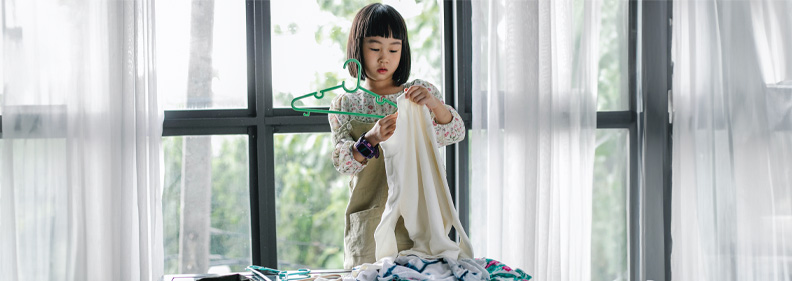Au Pair and Nanny Differences
What is the Difference Between an Au Pair and a Nanny?The terms "nanny" and "au pair" refer to two different types of childcare providers, each with their own characteristics and arrangements. Here are the key differences between a nanny and an au pair:
It's important to carefully consider your family's specific needs, preferences, and circumstances when deciding between a nanny and an au pair. Factors such as the desired level of cultural exchange, flexibility, experience, and budget will play a role in determining which option is the best fit for your family's childcare requirements. Au Pair Childcare Advantages
Hosting an au pair provides several advantages over hiring a nanny or using daycare for childcare. Hosting an Au Pair is flexible, relatively inexpensive, and supports cultural exchange. While a local nanny can live in or live out, an au pair offers full-time, live-in care. Here are some key benefits:
It is important to note that the suitability of hosting an au pair versus hiring a live in nanny or using daycare will depend on your family's specific needs, preferences, and circumstances. Conducting thorough research on your au pair's home country and their family, considering your childcare requirements, and assessing the pros and cons of each option will help you make an informed decision that best meets your family's needs. Nanny and Au Pair Differences: Finding the Perfect Childcare Solution
When it comes to providing quality childcare, families have several options to consider. Two popular choices are hiring a live-in nanny or welcoming an au pair into their home. Both options offer valuable child care support, but they come with distinct differences. In this article, we will explore the key distinctions between au pairs and nannies to help you decide which childcare solution best suits your family's needs. Au Pair vs. Nanny: Understanding the BasicsAu pairs are 18-26 years old from other countries who participate in cultural exchange programs, such as the Au Pair Program. They live with a host family, typically for a period of one to two years, and provide childcare assistance. Au pairs are often considered temporary family members, as they aim to immerse themselves in the host family's culture and offer a unique opportunity for cultural and language exchange. Nannies, on the other hand, are professional childcare providers who are typically hired by families to care for their children. Nannies can be live-in or live-out, and they may have extensive experience and training in childcare. Nannies are hired specifically for their childcare expertise and do not typically participate in cultural exchange programs. Childcare Experience and Qualifications
Au pairs usually have prior experience in childcare, but their qualifications may vary. To become an au pair, individuals must meet certain requirements, such as being between the ages of 18 and 26, having a good command of the host country's language, and GreatAuPair requires that each au pair have at least 1,200 hours of childcare experience. Infant care experience is required for au pairs who intend on caring for infants. A Live in Nanny is generally experienced and trained in childcare. Many nannies hold relevant certifications, degrees in early childhood education, or have completed specialized training programs depending on their country. They are hired for their expertise in child care, which can exceed that of many au pairs. If you plan to hire a foreign nanny, be sure you can obtain the proper work permit. Au Pair vs. Nanny: Household Responsibilities
Au pairs are primarily responsible for childcare. They may be required to help with light housework related to the children, such as preparing meals, doing children's laundry, and tidying up their rooms. Au pairs typically work a set number of hours per week based on your schedule, and cannot exceed 45 hours per week, and they have specific duties related to child care. Most au pairs are experienced drivers, but you should evaluate their driving skills and ensure they are licensed and insured. Nannies' duties are more comprehensive and may include a broader range of household management responsibilities and duties for the family. Nannies are often responsible for all aspects of childcare, from preparing meals and overseeing children's activities to organizing playdates, managing schedules, and even handling school pickups and drop-offs. Au Pair Costs vs. Nanny Salary
The cost of hosting an au pair can vary depending on factors such as the au pair's nationality, the host country, and the specific au pair program or agency. Host families are required to provide room and board for their au pair, in addition to a weekly stipend. The minimum weekly stipend for au pairs in the United States, for example, is set by the U.S. Department of State, but au pairs and host families can negotiate a higher stipend based on their considerations. There may be additional costs, such as program fees and educational expenses. Nanny salaries also vary widely depending on factors such as location, experience, and the nanny's qualifications. In many cases, nannies are paid an hourly wage and receive compensation for overtime and additional duties. The salary is negotiated between the family and the nanny, and it typically falls within the minimum wage regulations of the host country. Au Pair vs. Nanny: Cultural Exchange and Language Learning
One of the significant benefits of hosting an au pair is the cultural exchange opportunity. Au pairs are encouraged to immerse themselves in the host family's culture, learn the language, and participate in family life and activities. This cultural immersion can provide valuable memories and experiences for both the host family and the au pair. While nannies contribute to a child's overall development, they are not typically involved in cultural exchange programs. Nannies focus on providing exceptional child care services and ensuring the well-being of the children under their care. Support and ScheduleAu pairs often have a local childcare coordinator who works for the au pair agency. The coordinator supports the au pair and host family, ensuring the placement runs smoothly and that all program regulations are met. Au pairs work a set number of hours per week, and their schedules are established in advance. Nannies may or may not have access to support from an agency, depending on the family's hiring arrangements. Their schedules can vary widely, depending on the family's needs and expectations, and they are often expected to be more flexible in their hours. Au Pair vs. Nanny: Making the DecisionThe choice between hiring an au pair or a nanny depends on various factors, including your family's specific needs, expectations, and budget. Au pairs offer a unique cultural exchange experience and can be an affordable childcare option for families seeking more than just a caregiver. GreatAuPair requires all their au pairs to have a minimum of 1,200 hours of childcare experience, and many are infant- and special-needs qualified. On the other hand, nannies may be older with extensive childcare and educational experience. |
| Return to Help |
| Return to FAQs |







